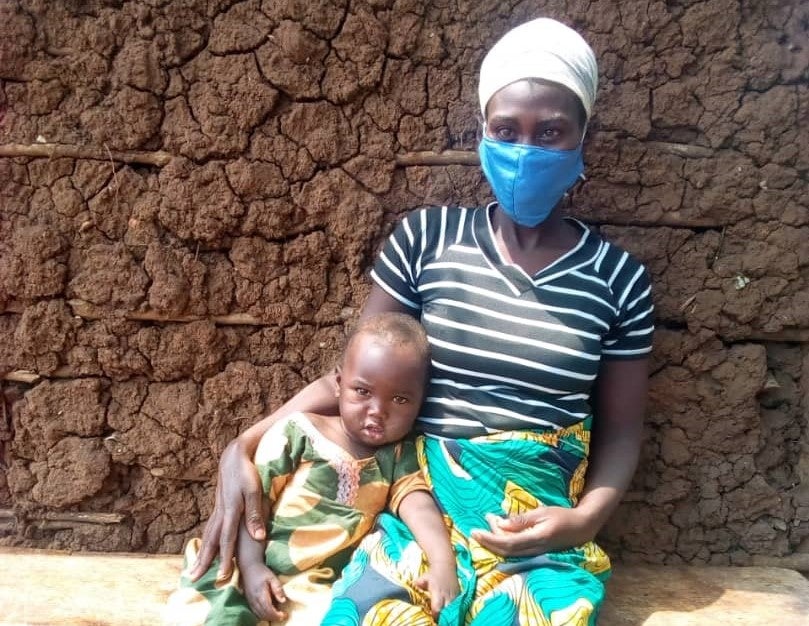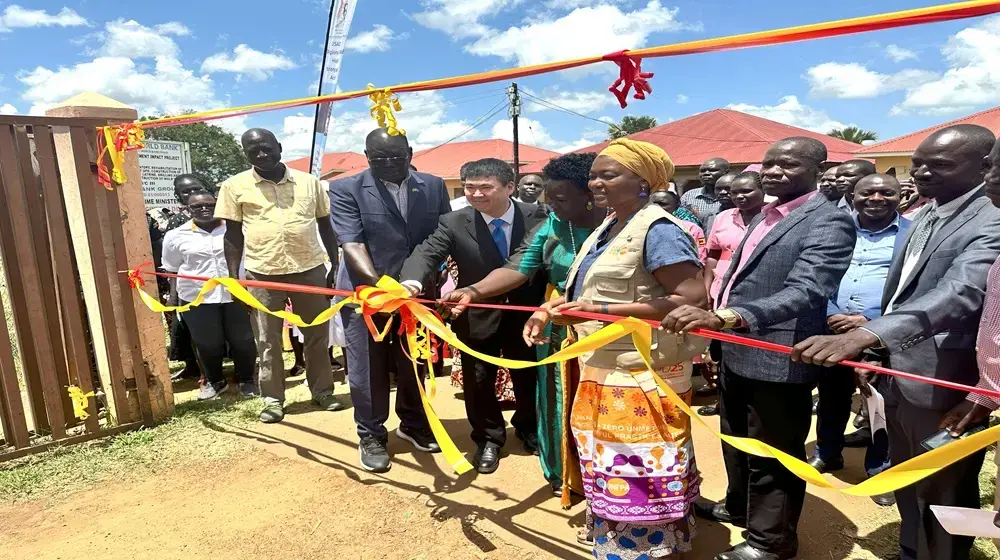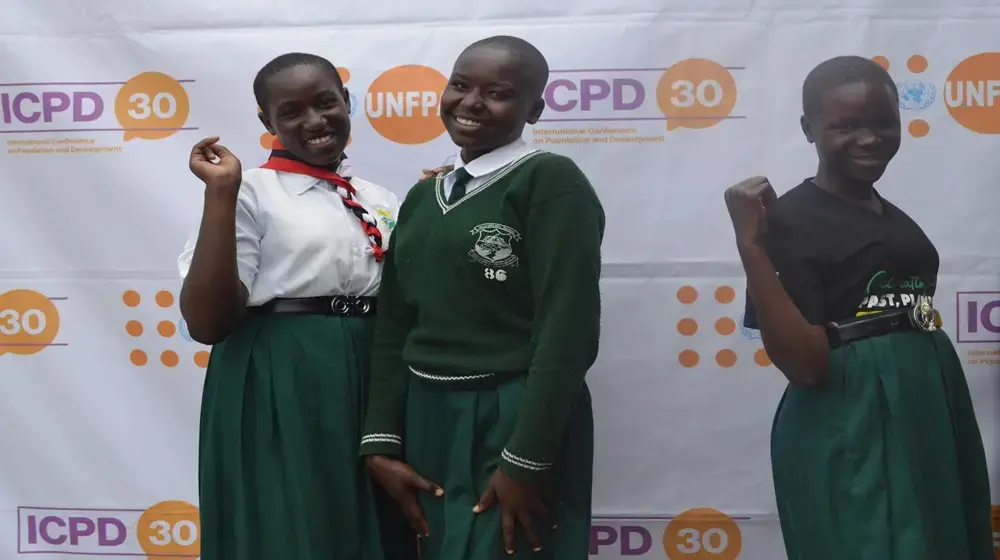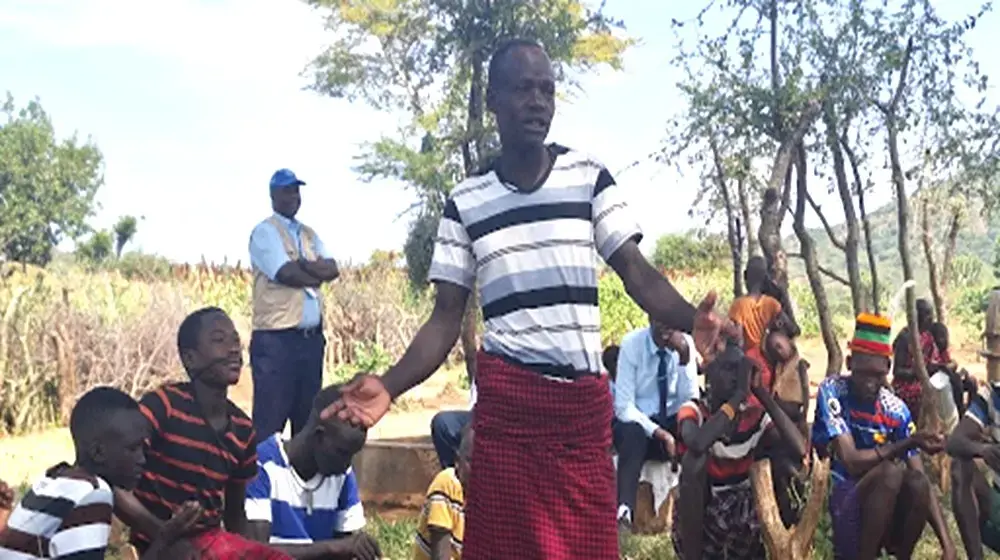Twenty-seven year old Nzibonera Nyirakurukundo, a resident of Nyampindu village Block 10 in Kyangwali settlement is a mother of three children, aged five, four and recently delivered a healthy baby boy who is one and half months.
“Before, I was not aware of family planning so I had not used it before. I also delivered my children from home because I did not know the advantages of delivering from a health center,” she said.
Nyirakurukundo recalls having life threatening post-delivery complications and being treated for infections after giving birth from home.
In 2019, with support from the UN Central Emergency Fund (CERF), UNFPA Implementing Partner Lutheran World Federation (LWF) started sensitizations on sexual and reproductive health targeting women and young people. Family planning education was one of the topics.
In August 2020, Nyirakurukundo was one of the beneficiaries of a sensitization carried out by community volunteers where she was educated on importance of delivering from a health center.
“I was able to deliver my last born at Rwenyawawa health center III where I was given an injection to reduce the bleeding I had a safe delivery. The health center was clean and for the first time I did not get an infection.
“I have also enrolled on family planning method, injector plan, for three months so I do not expect to have an unplanned pregnancy. I will conceive when am ready to have another baby,” she said.
At the time of our visit Nzibonera was taking her baby to the health center for immunization.
The story of 32- year-old Devota Uwimana, a resident of Nyampindu Block 10 in Kyangwali settlement is not different. A mother of six - aged 15, 10,8,6,4 and 1-year-old baby, in late 2018, Devota says she developed a maternal complication that caused a lot of bleeding.

got from the community sensitisation on sexual and reproductive health.
“I was rushed to Kyangwali health centre IV for treatment when I was semi-conscious. I had bled a lot so I became anemic and had blood transfused in me.” This experience caused Uwimana to start thinking of how she could prevent another pregnancy.
Again a beneficiary of the community sensitizations on sexual and reproductive health, Uwimana was able to learn about family planning and its benefits.
“Through the knowledge I got, I started using family planning. I used them for six months until I decided to conceive. I also made sure I attended regular antenatal and am glad to say unborn baby and I did not get any complications for the nine months of pregnancy,” she said.
Initially, Uwimana says she delivered all her first five children from home because she did not have information on the benefits of delivering from a health center under skilled care.
“But following the sensitizations I received, I chose to give it a try and delivered my boy at Rwenyawawa health center III. On arrival, I was received very well by a midwife who kept checking on me until I delivered. I had a safe delivery and received all the assistance from the mid wife, she even cleaned and dressed me after delivery. For once I felt important.”
An analysis of data on maternal deaths in Kikuube district shows a 75 percent reduction in maternal deaths from four deaths reported between January-June 2020 to one death reported in July-December 2020.
According to Mr. Kiyebire Paul a Clinical Officer/health facility administrator in Rwenyawawa health Centre III, this is attributed to the lifesaving services provided under UNFPA in the health facilities and community.
Mr Kiebire appreciates the support received through the UN Central Emergency Fund in terms of human resource at the facility including provision of midwives, dignity kits to vulnerable mothers and mentorship sessions for health workers.
“For the three and a half years I have been in this facility, we have reported zero maternal deaths and the knowledge gap we had in audits of maternal and perinatal death reviews has been curbed through the trainings and mentorship sessions. We currently have one midwife supported by UNFPA but hope to get more in the subsequent period,” he said.
Written by Desmond Sekweya (with support from the LWF team in Kyangwali settlement)





